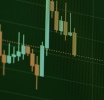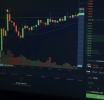The Psychology of Binary Options Trading

The Psychology of Binary Options Trading
Binary options trading, a financial instrument that allows individuals to speculate on the price movement of underlying assets, has gained significant popularity due to its simplicity and high return potential. Unlike traditional trading, binary options offer a fixed return for a correct prediction and a fixed loss for an incorrect one, making the process seemingly straightforward. However, beneath this veneer of simplicity lies a complex interplay of psychological factors that can significantly influence trading outcomes.
Understanding the emotional influences in binary options trading is crucial for both novice and seasoned traders. Emotions can cloud judgment, lead to impulsive actions, and ultimately impact profitability. The objective of this essay is to delve into the psychology behind binary options trading, exploring how emotions affect decision-making processes and providing strategies for managing these emotions effectively.
Understanding the emotional influences in binary options trading is crucial for both novice and seasoned traders. Emotions can cloud judgment, lead to impulsive actions, and ultimately impact profitability. The objective of this essay is to delve into the psychology behind binary options trading, exploring how emotions affect decision-making processes and providing strategies for managing these emotions effectively.

The Psychology of Binary Options Trading
The Role of Emotions in Trading
Trading binary options can evoke a wide range of emotions. The most common ones include:Fear: The apprehension of losing money can paralyze traders or push them to make overly cautious decisions.
Greed: The desire for quick profits can lead to reckless trades without proper analysis.
Excitement: The thrill of potentially high returns can overshadow rational thinking.
Regret: Past losses or missed opportunities can haunt traders, influencing future decisions.
These emotions significantly impact decision-making processes. For instance, fear might cause a trader to exit a position prematurely, missing out on potential gains. Conversely, greed might lead to overtrading or holding onto a losing position in hopes of a turnaround. Excitement can result in impulsive trades based on hunches rather than data-driven analysis. Regret can cause traders to either become overly conservative to avoid repeating mistakes or excessively aggressive in an attempt to recover losses quickly.
Psychological Theories and Models
Several psychological theories provide insight into how emotions influence trading behavior:Behavioral Finance: This field studies how psychological factors affect market outcomes. It posits that traders are not always rational and are influenced by biases.
Cognitive Biases: These are systematic errors in thinking that affect decisions and judgments. Common cognitive biases in trading include:
Overconfidence Bias: Overestimating one’s ability to predict market movements.
Confirmation Bias: Favoring information that confirms pre-existing beliefs while ignoring contrary evidence.
Loss Aversion: The tendency to prefer avoiding losses over acquiring equivalent gains.
Applying these theories to binary options trading reveals that traders often make decisions based on emotions rather than rational analysis. Overconfidence bias might lead them to take undue risks based on past successes, while confirmation bias might cause them to disregard important data contradicting their expectations.
Case Studies and Real-Life Examples
Analyzing real-life case studies highlights the profound impact of emotions on trading outcomes:Case Study 1: The Fearful Trader
A trader who consistently exited positions early due to fear of losses found that they missed out on significant gains over time. Their fear-driven strategy resulted in small but frequent losses outweighing occasional small wins.
Case Study 2: The Greedy Trader
Another trader who let greed dictate their actions took large positions without proper research during periods of market euphoria. This led to substantial losses during market corrections when their over-leveraged positions backfired.
Lessons Learned:
These examples underscore the importance of emotional regulation in trading. Fear can limit potential profits by causing premature exits from profitable trades, while greed can result in devastating losses due to lack of proper risk management.
Strategies for Managing Emotions in Trading
Managing emotions effectively is essential for successful binary options trading:Mindfulness: Practicing mindfulness helps traders stay present and aware of their emotional state, reducing impulsive reactions.
Setting Limits: Establishing predefined limits for gains and losses prevents emotional decision-making during live trades.
Continuous Learning: Staying informed about market trends and continuously honing trading skills builds confidence and reduces susceptibility to emotional influences.
Psychological Resilience: Developing resilience helps traders bounce back from setbacks without allowing regret or frustration to cloud future decisions.
In conclusion, understanding the psychology behind binary options trading is crucial for making informed decisions devoid of emotional bias. By recognizing common emotional pitfalls and employing strategies for managing them, traders can enhance their decision-making processes and improve their overall performance in the market.
This essay provides an insightful exploration into the psychological aspects influencing binary options trading, highlighting how emotions play a critical role in decision-making processes and offering practical strategies for managing these emotions effectively.
Binary options, Trading psychology, Decision-making, Emotions, Financial markets
This essay provides an insightful exploration into the psychological aspects influencing binary options trading, highlighting how emotions play a critical role in decision-making processes and offering practical strategies for managing these emotions effectively.
Binary options, Trading psychology, Decision-making, Emotions, Financial markets














Report
My comments